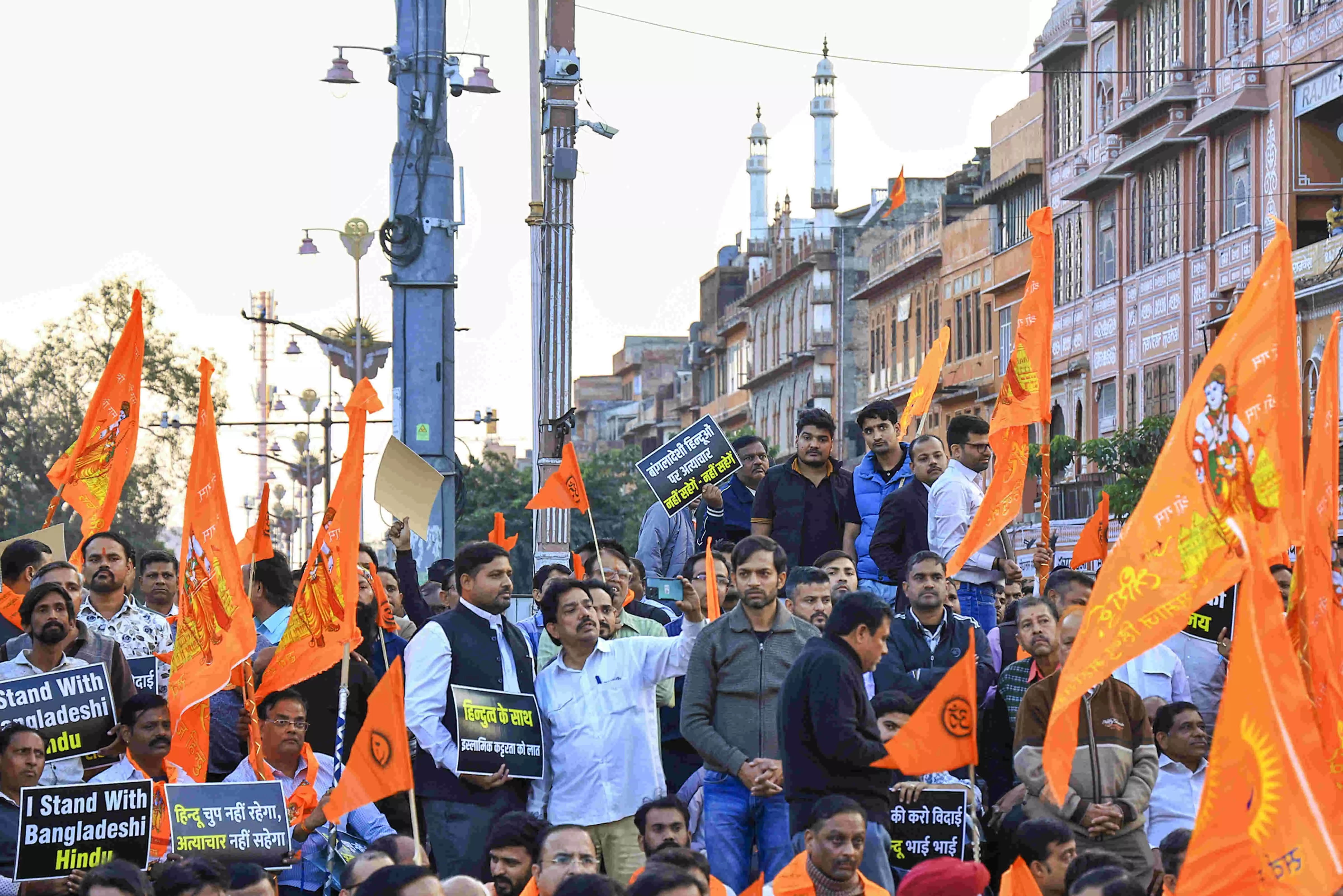Unabated anarchy
Arrest of Chinmoy Krishna Das has worsened the situation in Bangladesh which is already grappling with lawlessness, political turmoil, media suppression, and communal tensions post the regime change on August 5

There has been no let-up in the communal tension that has gripped Bangladesh following the arrest of ISKCON leader Chinmoy Krishna Das and the subsequent violence after his appearance in a Chittagong court, where he was denied bail. Although the detained Hindu leader had appealed for calm and tranquillity, a Muslim lawyer was murdered, and Islamic radicals, along with the government, have blamed Hindus for the killing, further inflaming the volatile situation. While reports are still being verified, it is alleged that Islamic miscreants have begun vandalising Hindu places of worship in Chittagong. Irresponsible calls by certain religious extremists to target Hindus as part of a vendetta have exacerbated the crisis. By the time this piece goes to print, the situation could be more serious as things look pretty out of control, taking the shape of a full-fledged violence on communal lines—affecting many districts of Bangladesh.
It may be recalled that Chinmoy Krishna Das commands a massive following among Sanatani Hindus. He had courageously organised a Hindu solidarity march in Chittagong some time ago, demanding safety and security for the Hindu minority from the government. Such display of boldness is seen by the Bangladesh-based religious extremists, and even the government establishment, as defiance of the might of the brute religious majority and the caretaker dispensation. When Das was about to board a plane from Dhaka to Chittagong, he was apprehended by the Detective Branch. Upon being presented in a Chittagong court, the law enforcement agencies handled the situation ineptly, leading to confusion, violence, and the tragic death of a lawyer.
What is sad, reflecting and exposing very poorly the Bangladesh establishment, is the ham-handed manner of dealing with this sensitive issue that is assuming alarming communal proportions. The situation spun out of control within no time, and when the Indian Ministry of External Affairs appealed to the Bangladesh government for intervention for safety of the Hindus in the light of Chinmoy’s arrest and the unpleasant developments that followed, the latter reacted rather irrationally by issuing a very strong statement, bereft of any basic diplomatic courtesies—causing a kind of impasse in the bilateral relationship between India and Bangladesh which has already started showing signs of strain in the last over three months.
Currently, Bangladesh is engulfed in an atmosphere of uncertainty and unpredictability, affecting not only the Hindu minority but the general population as well. The country has been far from stable since the regime change on August 5. Anarchy prevails, and it is now more visible than ever. Last week, numerous instances of student-related violence erupted in Dhaka, both on campuses and on the streets. The semblance of law and order is virtually non-existent. The advisory body under Muhammad Yunus appears to be on a paid holiday, leaving the administration paralysed, with no coordination, no action, and not even feeble attempts to contain the spiralling deterioration of law and order. There is a glaring absence of any guiding or stabilising voice. Matters seem to be muted, and the media, far from fulfilling its role, appears either cowed by fear or complicit by design. It remains silent or issues only pro-government statements, blindly following an establishment line that lacks direction or clarity.
Utter confusion reigns supreme in political circles also. The Bangladesh Nationalist Party (BNP) is in a hurry to occupy the political vacuum as it has been without power for a considerable time. Its leader Khaleda Zia was recently seen chatting with the student leaders in her military Cantonment house. One doesn’t know what roadmap she is trying to give to the new generation with her limited political wisdom or sanity! Similarly, her son, Tariq Rahman, is issuing statement after statement, calling for ambiguous actions just to participate in the elections and usurp power. This is obviously to keep afloat with his political image with elections in mind.
In essence, the country does not seem to be under the effective control of either the army or Muhammad Yunus. Everyone’s authority is tenuous at best. The mix of advisors, ranging from retired army generals to new crop student leaders, lacks coordination and fails to converge on any common plan for the country's betterment. Activists of the Awami League (AL) and those perceived to have ties to the previous regime are being indiscriminately branded as anti-nationals and thrown behind bars. These actions appear to be acts of revenge, driven by frustration and intended to suppress dissent. The same treatment is being meted out to media personnel.
Amid this chaos and uncertainty, the Chinmoy Das ISKCON incident has introduced fresh challenges, further heightening the risk of communal clashes, endangering Hindu lives and property, worsening Indo-Bangladeshi ties, and pushing the country deeper into chaos—arguably the worst it has faced in its 53-year history. This raises a big question mark on the forthcoming Victory Day of December 16. Its significance seems to be under strain due to the ongoing disturbing developments.
The writer is a retired IPS officer, Adviser NatStrat, and a former National Security Advisor in Mauritius. Views expressed are personal



